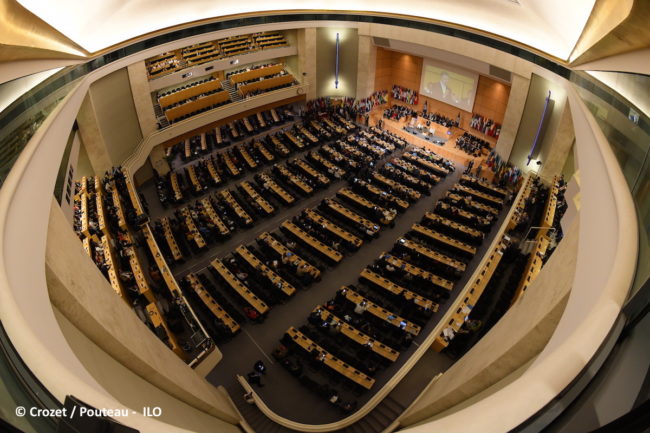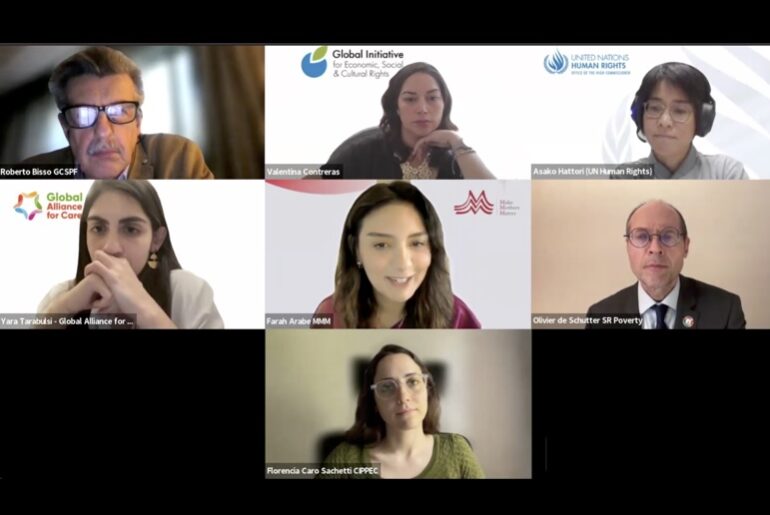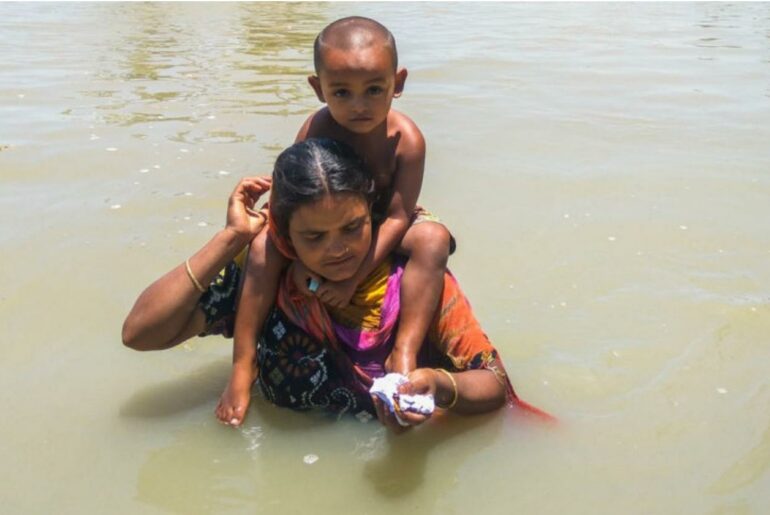ILO’s push for gender equality at work is welcome but will require action beyond Labour sector
04.06.18
UN Geneva / International Labour Conference - MMM oral intervention commends the International Labour's Organisation's Women at Work Initiative and its new "push for equality". It also reaffirms the urgent need to address the issue of unpaid family care work, and provides policy recommendations cutting across multiple sectors.

The objective of the statement that MMM delivered on the 4th June in plenary sitting was to participate in the discussion around the report, The Women at Work initiative: The push for equality, that the ILO Director-General presented at the International Labour Conference
The “time-money-agency conundrum”: unpaid family care work
MMM welcomes the clear acknowledgment in the report of the “time-money-agency conundrum” – which most women face, as a key issue that must be addressed as the main structural obstacle to further progress on gender equality.
Central to this conundrum is the issue of unpaid family care work – that is the inequitable distribution between men and women of the unpaid domestic and care work performed in the home. This work is not only essential to reproducing and sustaining families: in fact, it supports the economy and society as a whole. Globally women still do 2 ½ times more unpaid care and domestic work than men. And when paid and unpaid work is combined, on average women work longer hours than men – especially when they are mothers.
Yet, instead of being recognized and valued for combining these care and professional responsibilities, women continue to be penalized. Mothers especially encounter systematic discriminations and obstacles in hiring and promotion, and suffer wage discrimination linked to motherhood (the “motherhood penalty”).
Addressing these issues goes well beyond the labour sector alone and requires a multi-sectoral approach, also involving education, health, social welfare and fiscal sectors. It requires a paradigm shift: (1) putting care, education, and the well-being of people at the centre of government priorities and policies; and (2) taking a long-term perspective and investing for the future.
MMM recommendations
- Promote care as valuable work and consider public spending on policies that support the unpaid care work of nurturing, raising, educating children as an investment in Early Childhood Development and human capital, and not as a mere expenditure.
- Provide accessible, affordable and high-quality public services and infrastructures, in particular in the most disadvantaged and remote areas, with the explicit objective of addressing women’s “time poverty”.
- Promote the equal sharing of care responsibilities between men and women, starting with paid paternity leave and shared paid parental leaves.
- Promote diverse work and family life reconciliation policies accessible to all, including the right to request flexible working arrangements – as well as regulations supporting quality part-time work and job sharing schemes
- Take a life-course perspective and facilitate discontinuous career paths
- Building on the landmark resolution adopted at the 2013 International Conference of Labour Statisticians, make unpaid family care work visible and Legally recognize unpaid family care work as being a particular category of labour that gives status and rights to caregivers.
The International Labour Conference is organized annually by the International Labour Organisation (ILO). Its 107th edition took place from 28 May to 8 June 2018 in Geneva.
See also on MMM website:
- Unpaid family care work: vital but invisible and unrecognized
- Discriminations in the economic sphere: the “motherhood penalty”
The New EU Gender Equality Roadmap : A Call for Inclusion of Mothers
04.03.25
The European Commission’s initiative on a new Gender Equality Roadmap post-2025, marks a significant step forward in addressing gender disparities across the European Union. Make Mothers Matter (MMM
Breaking the Cycle: Gender Equality as a Path to Better Mental Health
18.03.25
The Council of the European Union has taken a decisive step in recognising the vital connection between gender equality and mental health.
Europe Must Listen to Mothers: Our landmark report heads to the European Parliament
28.08.25
On 22 September 2025, the voices of mothers will take centre stage in Brussels. For the first time, Make Mothers Matter (MMM) will present its State of Motherhood in Europe








